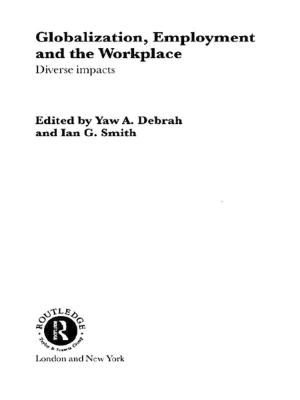Forests and Development
Local, National and Global Issues
Business & Finance, Economics, Economic Development| Author: | Philippe Delacote | ISBN: | 9781136304095 |
| Publisher: | Taylor and Francis | Publication: | April 27, 2012 |
| Imprint: | Routledge | Language: | English |
| Author: | Philippe Delacote |
| ISBN: | 9781136304095 |
| Publisher: | Taylor and Francis |
| Publication: | April 27, 2012 |
| Imprint: | Routledge |
| Language: | English |
This book is a fully up to date study of the major issues facing forest conservation and the forestry industry, which considers developments at local, national and global levels. Environmental and development topics relating to each level are discussed – for instance, the use of forest products in a rural poverty context, corruption and forest harvesting and consumption as a political device.
Delacote employs a quantitative approach in order to analyse the plight of tropical forests in the developing world, and in doing so produces a range of interesting conclusions. This methodology fills a crucial research gap in existing studies of forests in a development context – increased use of theoretical tools to interpret real life situations might be beneficial to the field. Therefore, the first objective of this book is to provide a sample of theoretical analysis concerning the forests and development nexus. The second objective is to supply empirical economists with new theoretical insights, with the hope that those results can emerge with conclusive field testing and relevant policy recommendations.
This book is a fully up to date study of the major issues facing forest conservation and the forestry industry, which considers developments at local, national and global levels. Environmental and development topics relating to each level are discussed – for instance, the use of forest products in a rural poverty context, corruption and forest harvesting and consumption as a political device.
Delacote employs a quantitative approach in order to analyse the plight of tropical forests in the developing world, and in doing so produces a range of interesting conclusions. This methodology fills a crucial research gap in existing studies of forests in a development context – increased use of theoretical tools to interpret real life situations might be beneficial to the field. Therefore, the first objective of this book is to provide a sample of theoretical analysis concerning the forests and development nexus. The second objective is to supply empirical economists with new theoretical insights, with the hope that those results can emerge with conclusive field testing and relevant policy recommendations.















